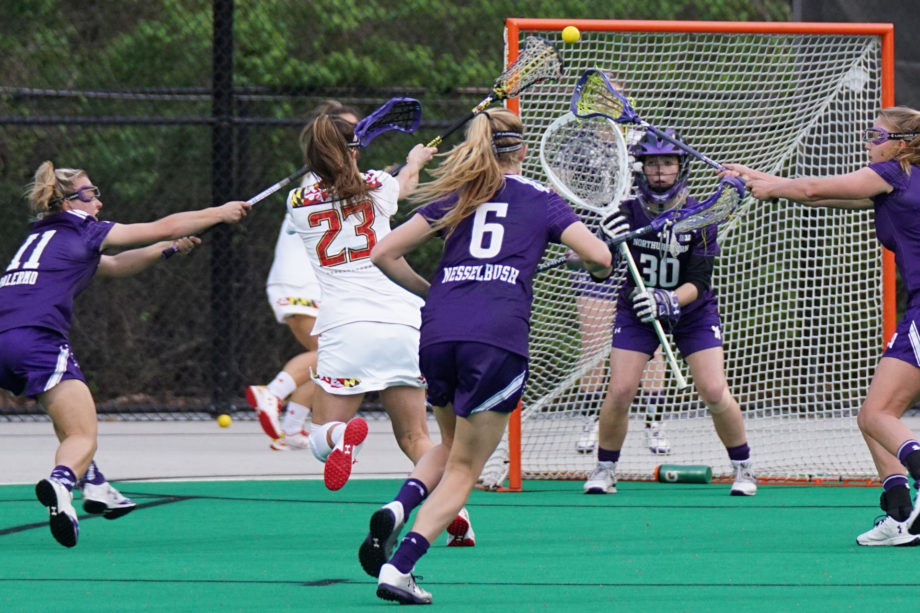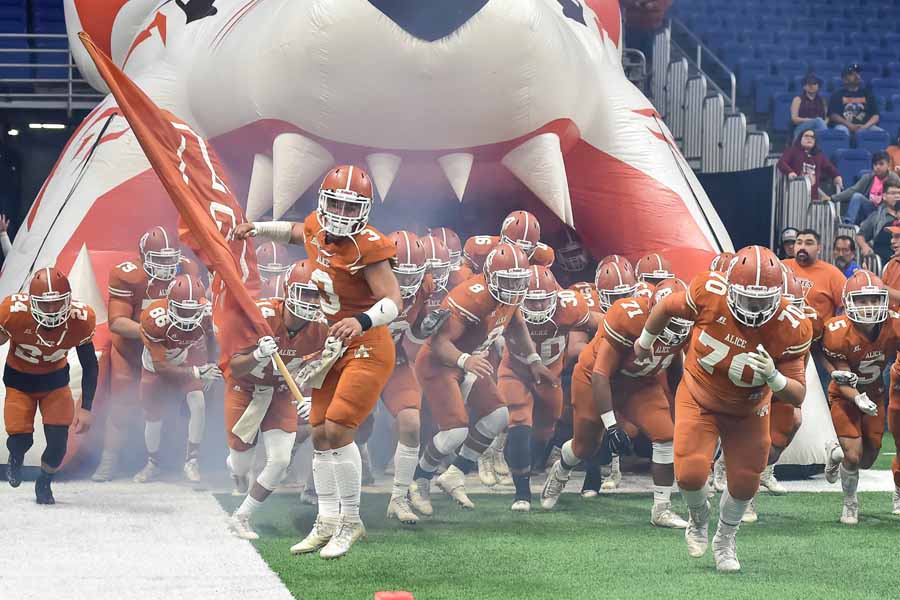#3: Were an impressive player at a tournament or game where college coaches were scouting
What separates good prep players from great ones is how they perform versus other players in head-to-head competitions. Sounds like common sense—know that you may be the superstar on varsity as a freshman at your school but unchallenged playing with and against weaker competition. How will you compete versus talented players in your area, how will you compete versus older and more physically developed players? Will you outperform them or will you be dominated? Put all of the players from your state in the ring, players will quickly begin separating themselves. Put those top players from each state in competition versus the best players from the 6-10 states within your region, a handful of players will really separate themselves, and that’s the group that elite FBS schools will begin to go after.
While many prospects feel their only shot at getting discovered or recruited is if a college coach shows up at their school to watch a game, it’s really not that common. First, coaches need a REASON to come to your school to scout you.
Combines will help you get on the map if you have good speed or size; competitions, events and tournaments will help you get noticed for your skill and technique as well.
In many sports, it is very helpful to play in AAU and compete in regional and national tournaments. These are the events that college coaches put priority on to scout. They bring several players in one location, giving coaches a few days to see a ton of prospects. If possible, try to get on a team and get out there to be seen at these events! That will only improve your chances to get them to come out to your school or to begin to recruit you. Remember, they need a REASON to come see you.
NCAA rules change every year, usually with the intent to limit college coaches to very select evaluation periods. A common complaint coaches have is that these strict rules make it difficult for coaches to get enough good looks at a prospect in action, in person. They may feel that it’s not enough time to gather complete information about several players that they are recruiting. Therefore, the system has evolved into third-party events including AAU tournaments and 7-on- 7 football tournaments, events that coaches can attend in-person or receive reports or results on.
Coaches know that you may have one or two bad games or practices when they are in attendance. They may hesitate to cut you from their watch list, or they may want to make sure that those one or two beastmode games that you had when they were in attendance weren’t a fluke either. So the more they can see (or hear about) you competing with other great players, or the more concrete research that they can get on you from trusted events, the better.
In many sports, combines and tournaments can attract a range of talent and can create these head-to-head competitions that help coaches in the evaluation process. These events are organized to provide opportunities for coaches to sit back, watch and evaluate several players within a weekend.
Others events are organized to provide concrete measurements, scouting reports, results and contact information on several prospects to universities across the country, even if coaches are unable to be in attendance to due to NCAA rules. In any way possible, these events provide “exposure” to many prospects and help them get their name out.
It’s important to compare yourself to other athletes your age and outwork those players. THIS is your competition. These are the players who want the same scholarships that you want. These are the hundreds of players calling, emailing and showing up on campus with the same dreams that you have. You have to find a way to separate yourself!
Be prepared to compete versus better talent and look for the best competition that you can find! Even if you don’t match-up, it should motivate you to work harder and understand where you rank. It will pump those competitive juices and eventually you may become just as great as those players who are used to edging you talent-wise.
The drawback during some of these evaluations periods is that coaches have a very limited window of days they can scout these events across the country—too many games in too many locations in a very short period of time. They may already have their list of players that need to be scouted that they are making it a priority to see.
Also, once coaches have evaluated their top prospects, they often follow these prospects and show up at as many of their games as possible, even if their evaluations are done. So as an unknown player, your window is smaller than you think. Time is already devoted to just showing up to games of players that have already commited, or who are a priority to the head coach.
Each sport limits the number of contacts and evaluations coaches may make per prospect throughout the academic year. Each sport has further regulations about when, where and how often coaches may come evaluate you or meet with you, ask your coach or check with the NCAA. Understand that they are limited in the amount of times they may come watch you!
Coaches from every single university are traveling from Atlanta to Kentucky to Las Vegas to Los Angeles to Orlando to Philadelphia to evaluate players during evaluation periods. Coaches from the defending national champions will be at these tournaments… along with staffs from Top 25 schools, from mid-level programs and from teams that may have only won a couple games last year. Every coach is looking for talent, and looking for players that are passionate about playing.
These types of tournaments and evaluation periods are common for all college coaches—all sports. Coaches at the schools that you are interested in may not have the time or flexibility to get to your game if you aren’t on their radar already. That’s why it’s important to try to get on their radar early, to give you more opportunities to be scouted.
For example, during a men’s basketball evaluation period, I know of a coaching staff who went to one city for two tournaments that had 996 combined games scheduled over a three-day period on 47 different courts across town. The first game started at 8am and the last game started at 9:45pm. Almost 1,000 games in three days on 47 courts, you can’t imagine the planning and coordination that goes into outlining the most important games to get to and putting together a schedule to make sure that they were getting to see the maximum amount of prospects! Coaches aren’t just going to wander aimlessly at these events, they have a specific list of players to scout and a schedule to stick to. They may notice other players while scouting specific recruits but they may not have the time to just wander aimlessly to find players. They have to have a plan!
Each AAU tournament sells coaches a packet of information with participating player’s names and contact info, as well as all the contact info for their AAU coaches. It works simply: when coaches see your talent and are interested, they add you to their list and get in contact with you or your coach. Watch lists undergo a major overhaul during these evaluation periods—cutting several players based on mediocre play, bad attitudes and size issues and adding even more players based on their talent, size, relentlessness and ability to make plays. They aren’t just adding scorers, they’re looking for defenders, rebounders, ball handlers and players who have a knack for making things happen. They’ll come back from these events with thick books of rosters—hopefully with several names circled to add to the database.
Don’t focus on your stat line at these events, focus on playing fundamentally solid and hustling on every play. For example, in basketball it’s not as much about scoring 40 points in every game as it is about playing fundamentally sound. Don’t put too much pressure on yourself to finish with a triple-double, instead you should focus on playing defense, getting rebounds, minimizing turnovers, hustling for loose balls and being a leader. For coaches, it’s about finding the most consistent, toughest and fundamentally sound players who play hard and make a difference for their team, especially playing against the greatest competition. They aren’t looking for ball hogs. You want to stand out as a difference-maker, what skill can you become a specialist at that will bring value to your team, to a potential college team, that can help you stand out?
When you are the hardest worker, a competitor and a leader at these events… coaches will notice.




